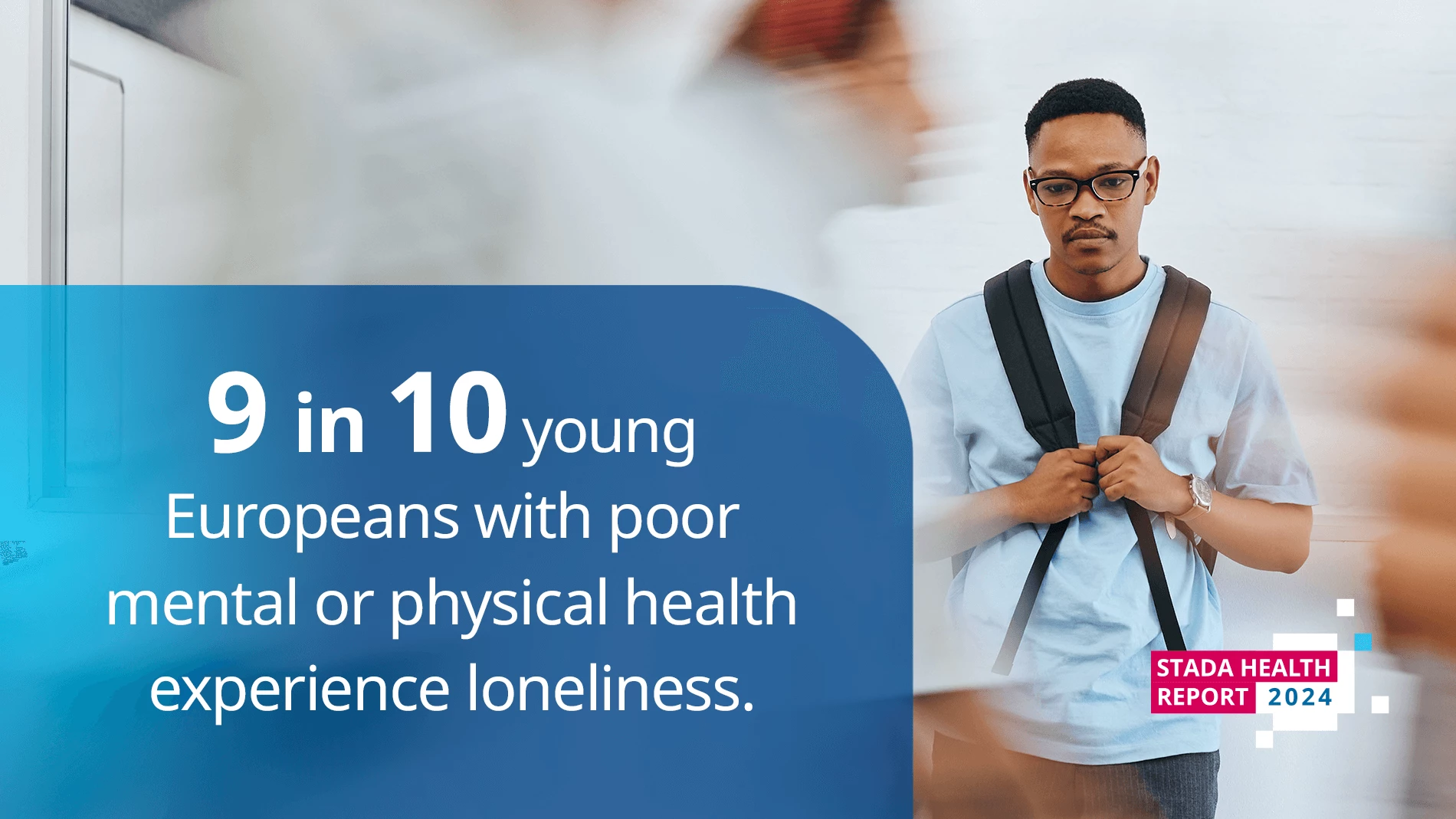Select your country
Websites worldwide
Select a country to go to the website of the respective STADA sales company.
Australia (1)
Austria (1)
Belarus (1)
Belgium (1)
Bosnia-Herzegovina (1)
Bulgaria (1)
China (1)
Croatia (1)
Czech Republic (2)
Denmark (1)
France (1)
Hungary (1)
Ireland (1)
Italy (1)
Montenegro (1)
Netherlands (2)
Poland (1)
Portugal (1)
Romania (1)
Saudi Arabia (1)
Serbia (1)
Slovakia (1)
Slovenia (1)
Spain (1)
Switzerland (1)
Thailand (1)
The Phillippines (1)
United Kingdom (3)
Vietnam (2)
The loneliness epidemic – how are Europeans coping?
The Health Report 2024 reveals that 1 in 2 Europeans feel lonely – and you may be surprised to discover who is most affected.

Many Europeans report good mental health – nevertheless, loneliness remains a pervasive issue for many. 52 % of Europeans say they are familiar with loneliness feelings. But who is most affected, and how can we turn the tide?
In 2023, the World Health Organization declared loneliness a ‘global public health concern’ and launched a commission on the topic, stating that it, “can be detrimental to health as smoking 15 cigarettes a day”. Women in Europe are more likely to be grapple with loneliness (57 %) than men (46%), and the prevalence of loneliness seems to decrease with age. Interestingly, young people aged 18 to 24, who are expected to have lots of social contacts and interaction, are in fact lonelier than their older counterparts. Among young Europeans, 2 in 3 consider themselves lonely, compared to only 1 in 3 Europeans over the age of 70.
However, there are ideas on how to turn this around: 46% of Europeans believe that an improved work-life balance could ease loneliness and other mental health challenges in society. Additionally, 43% see an improved economic situation as possible remedy. Rethinking our approach to social media could also bring about change, with 30% of Europeans suggesting reduced screen time.
With its 10th anniversary edition, the STADA Health Report ventures beyond identifying trends in Europeans’ thoughts and worries about all things health, to also offer actionable solutions for problem areas.
Find out more about these issues, their underlying causes and possible solutions in the full Health Report. And we will share more exciting insights over the coming weeks, so stay tuned.



